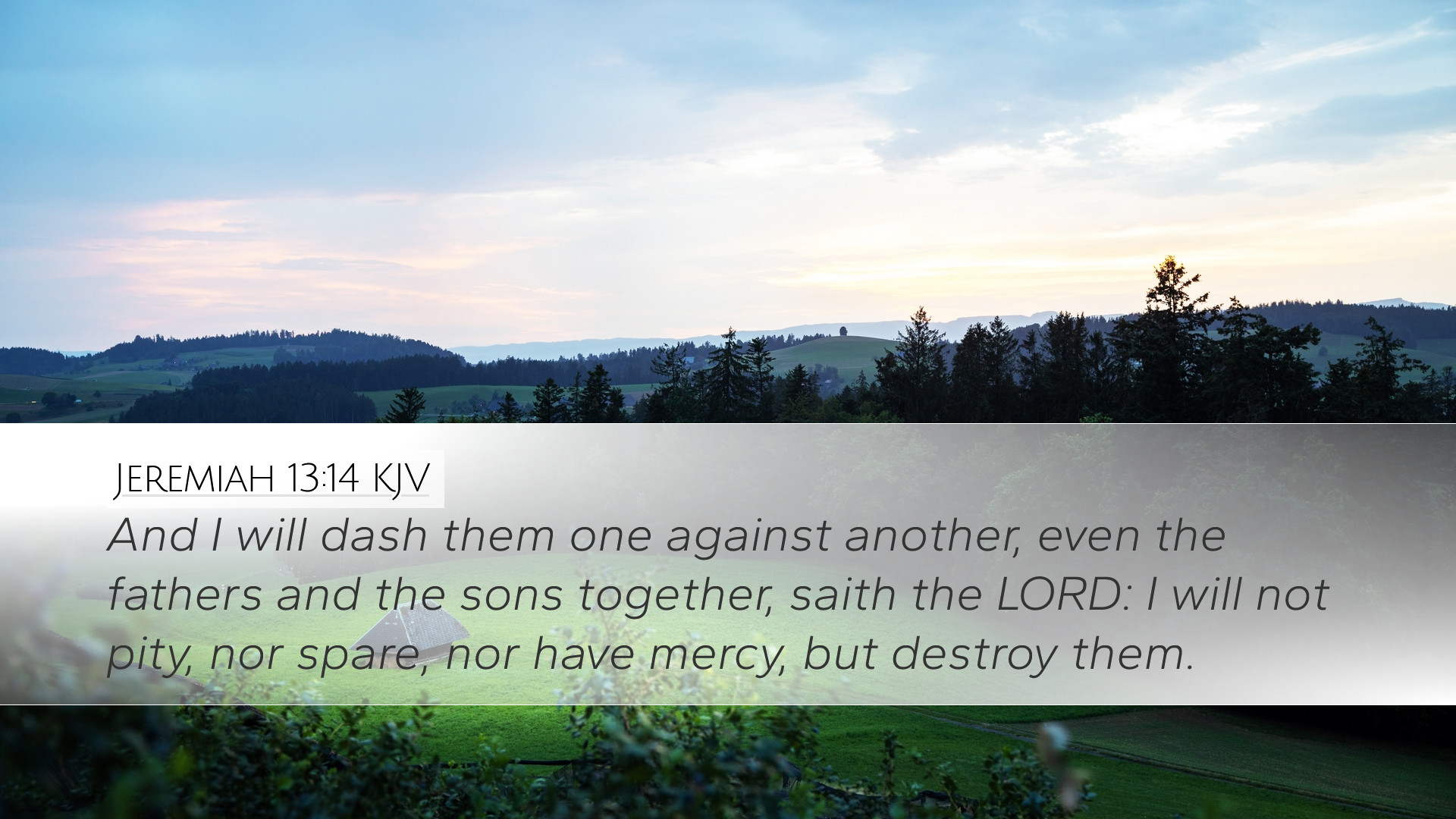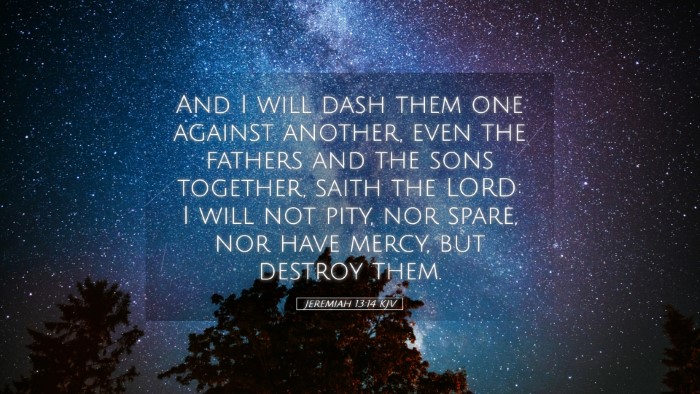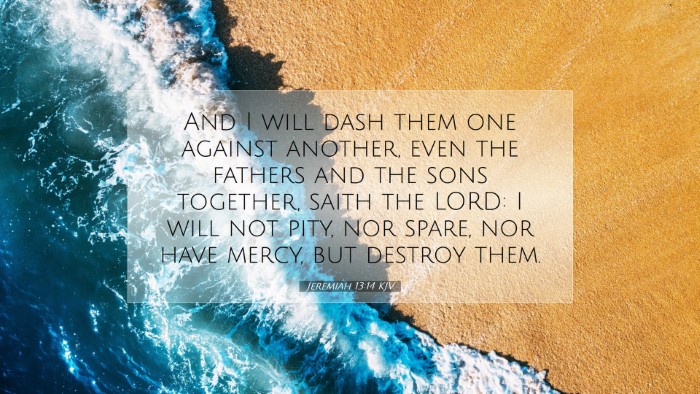Commentary on Jeremiah 13:14
Jeremiah 13:14 states: "And I will dash them one against another, even the fathers and the sons together, saith the Lord: I will not pity, nor spare, nor have mercy, but destroy them."
Contextual Overview
This verse is situated within a prophetic warning issued by Jeremiah, reflecting on the dire consequences of Israel’s disobedience and idolatry. Throughout the Book of Jeremiah, a recurrent theme is the judgement that will befall the people of Judah due to their failure to adhere to God’s covenant. Jeremiah, known as the weeping prophet, conveys this message with an urgency that reflects God’s grief over His people's rebellion.
Insights from Public Domain Commentaries
Matthew Henry's Commentary
Matthew Henry emphasizes the severity of divine wrath in this passage. He notes that the imagery of "dashing one against another" portrays the comprehensive nature of God’s judgement, which encompasses both the high and low, the fathers and their children. Henry elaborates that this reflects not only physical destruction but also a spiritual desolation that ensues from the entire nation's apostasy. He warns of the danger of taking God's mercy for granted, suggesting that such judgments serve as a warning of the consequences of disobedience and a call to repentance.
Albert Barnes' Notes on the Bible
Albert Barnes provides a detailed exegesis of the verse, interpreting it within the broader framework of prophetic literature. He explains that "I will not pity" indicates the certainty of judgement and reflects God’s righteous anger towards sin. Barnes further expounds that this passage underscores the seriousness with which God regards familial ties when they contribute to rebellion against divine commandments. The metaphor of dashing suggests that the consequences of sin are far-reaching, affecting not just the individual, but communities and families alike.
Adam Clarke's Commentary
Adam Clarke, in his commentary, reflects on the historical context of Judah’s disobedience and the impending Babylonian invasion. He highlights that God's refusal to "spare" or "have mercy" indicates a point of no return for the nation. Clarke points out that the verse serves to illustrate the holiness of God and the inevitable outpouring of His justice. He asserts that the utter destruction mentioned is both a physical eradication of the nation and a spiritual abandonment of the people by their God, emphasizing the importance of maintaining a faithful walk with the Lord.
Theological Implications
This verse presents profound theological implications for understanding God's nature, particularly His justice and holiness. The depiction of a God who punishes unrepentant sin parallels the New Testament's message about judgement. It poses challenging questions regarding the nature of divine mercy, justice, and the consequences of corporate sin. For contemporary application, ministers and theologians can reflect on:
- The nature of God’s justice: God's dealings with Israel reveal the seriousness with which He takes sin.
- The interconnectedness of familial responsibility: The judgment falling upon fathers and sons calls attention to the impact of sin on entire families and communities.
- The need for repentance: This verse serves as a profound reminder of the necessity of turning back to God to avoid the dire consequences of spiritual complacency.
Conclusion
Jeremiah 13:14 serves as a sobering reminder of God's unyielding stance against sin and His commitment to righteousness. For pastors, students, and theologians, this passage underscores the urgency of declaring God's truth and calling others to repentance. In an era where the messages of mercy are often highlighted at the expense of justice, the prophet's words compel us to maintain a balanced view of God’s character: He is both loving and just, merciful yet righteous. Embracing this duality can deepen our understanding of the Gospel and our relationship with God.


